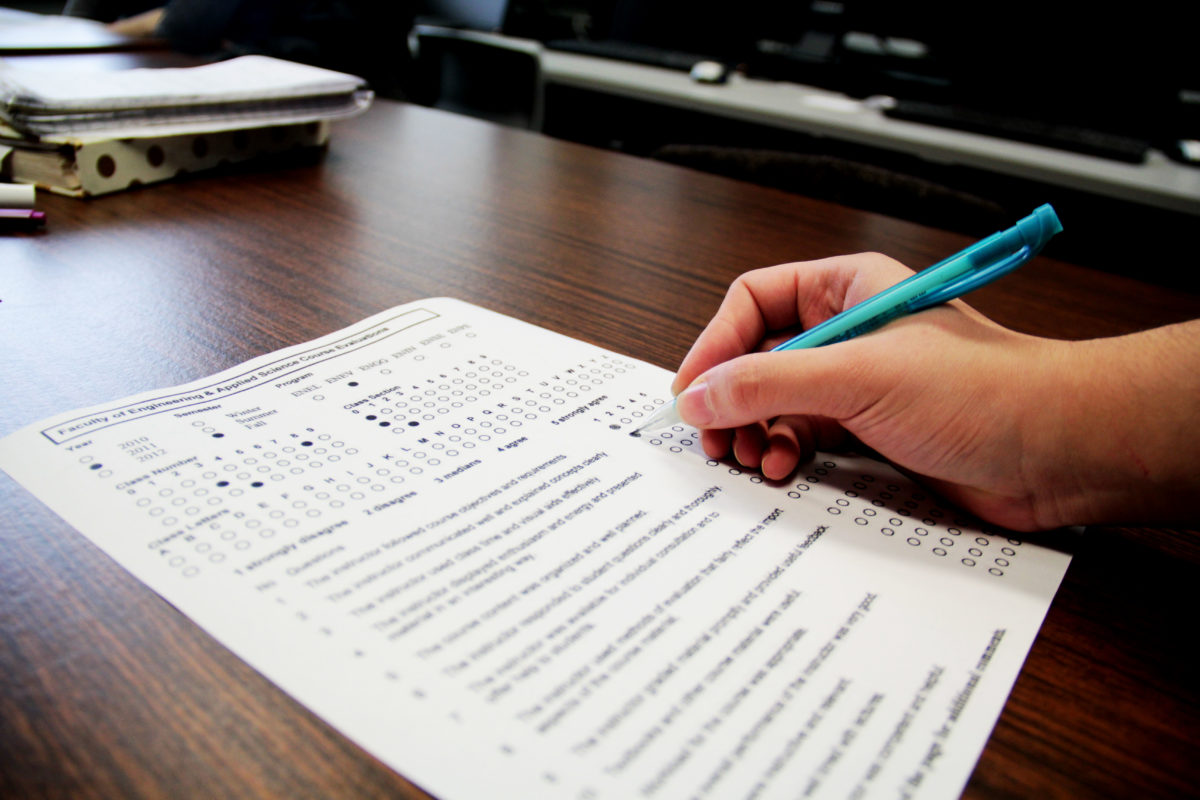Course evaluations are filled out by almost every student at the end of a semester to give their two-cents on how effective their professor taught the course.
On average, a graduating student will have filled out 40 course evaluations during their university career. But how effective are the evaluations at indicating positive and negative aspects of the course? Do professors even take the suggestions into consideration?
“I actually look forward to receiving them,” said Rodger Wilkie, an English professor at St. Thomas University.
Wilkie says that when he was a student, he took course evaluations very seriously because he expected his instructors to listen to what he had to say.
“Now that it’s my turn to be on the receiving end, I take it as a matter of not being a hypocrite, and take them seriously myself.”
Wilkie made it clear he is looking for constructive feed back from his students. The feedback should contain a lot of detail and include why the student is proposing the change. Students that simply state “it’s great” or “it’s bad” do not give him enough to work with.
“Whether it’s positive or negative, as far as I’m concerned, it’s all constructive if there are details there,” said Wilkie.
Jamie Gillies, a communications professor at STU, finds the course evaluations are beneficial and agrees detailed constructive suggestions assist him in knowing what methods are successful in his classes.
“Sometimes it is just helpful to know if you teach a concept that students want you to spend more time on, or simple things that can help you in the classroom. Like slowing down your lecture or using less words on a PowerPoint slide,” said Gillies.
Gillies said he reads and considers every evaluation submitted to him, and tries to adjust the classroom environment to be more inclusive.
Both qualitative and quantitative feedback is given to professors after final grades are submitted to the registrar. This makes it safe for students to voice honest opinions about how the semester went. This prevents professors from recognizing the hand writing of students and letting their opinions affect the student’s grades.
Shanna Barrest, a fifth-year Bachelor of Education student, thinks the course evaluations are a waste of time and are done too late in the semester to be effective for current students.
“By the time you do the evaluation you’ve already been graded,” said Barrest, “so it doesn’t do anything for you at all.”
As an alternative, Barrest thinks that evaluations should be done earlier in the semester.
“Maybe if they were given after the first three to four weeks of class, teachers could learn how their students learn best,” said Barrest.
Ryan Landry is a third-year student and agrees that having an evaluation earlier in the semester could make a difference for current students.
“An alternative may be splitting it up in to a mid-course and end-course evaluations, that way it would give a prof time to make changes during the semester,” said Landry.
He feels evaluations can be beneficial in the long-term, if professors take the time to read them.
“I feel like some profs look at the evaluations, but most don’t,” said Landry. “A lot of the time, you’ll take a course with the same prof, as a second or third-year course and you notice that only some things have changed. I feel like they look at them think, ‘Oh I should change that’, but never end up putting any effort in to it.”

